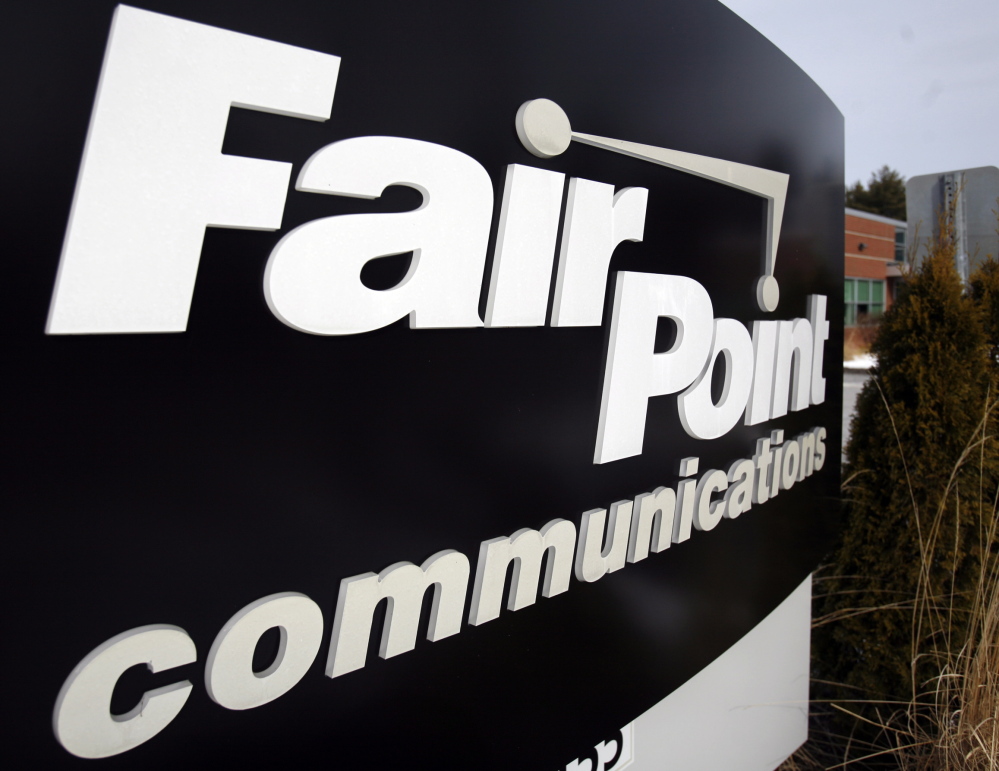FairPoint Communications walked away from the negotiating table after four months of labor talks, paving the way for an employee lockout or a strike by unions representing 2,000 workers in northern New England, including nearly 800 in Maine.
The unions responded by accusing the telecommunications company of negotiating in bad faith and filed a complaint Thursday morning with the National Labor Relations Board.
The company and its primary unions – the International Brotherhood of Electrical Workers, which represents 1,700 workers in Maine, New Hampshire and Vermont, and the Communication Workers of America, which represents 300 workers in the three states – have been negotiating a new labor contract since April. The employees are currently working under the provisions of a contract that expired Aug. 2.
FairPoint says it needs to cut labor costs to remain competitive, while the unions want the company to address, among other things, its use of non-union contract workers. In 2012, the company had 290,000 access lines serving customers in Maine, according to the state Public Utilities Commission.
At a meeting Wednesday in New Hampshire, the unions’ bargaining committee offered a new proposal with concessions that would save the company $210 million over three years, said Jenn Nappi, assistant business manager for IBEW Local 2327 in Augusta. After considering the proposal for five hours, the company’s representatives said they needed to confer with management.
Before Nappi had returned home to Maine, FairPoint officials already had emailed union leadership to say negotiations had reached an impasse and it was imposing the original proposal it put forth in April. The company claims the action is permitted by federal labor law when “there is no meaningful prospect for a negotiated settlement.”
“The company would prefer negotiated agreements, but feels the offer being implemented … is fair to its hard-working and valued workforce. It is regrettable that the issues could not be resolved through bargaining,” Angelynne Amores Beaudry, FairPoint’s communications director, said in a written statement.
The final proposal, Beaudry said, doesn’t change current wage rates for existing employees; offers substantially the same benefit plans, including medical coverage that was similar to what managers receive; freezes the existing defined-benefit pension plan while preserving employees’ accrued benefits; and eliminates retiree medical benefits for current employees.
The unions contest the company’s characterization of the negotiations in its complaint with the NLRB. “We believe without question the company has violated federal law in doing this,” Nappi said Thursday. “We’re not at an impasse and they’ve been bargaining in bad faith.”
Nappi said the unions have made three comprehensive proposals that save the company more than $200 million. The company has rejected all three without offering a single counterproposal, she said.
“What we want to do is get the company back to the table and have a real dialogue, and that’s what the company has refused to do from the get-go,” Nappi said.
Beaudry would not comment on specifics of the contract negotiations, but denied allegations that the company has negotiated in bad faith.
“We believe this is without merit and we will be responding accordingly,” she said.
By filing their complaint, the unions are seeking injunctive relief to prevent the company from locking out employees.
“What the company has been hiding in all their press releases is that … their proposal gives them the ability to contract out all IBEW and CWA work to untrained, out-of-state workers,” Nappi said. “That has been our main issue all along. Their imposition gives them the freedom to outsource everything and eliminate 800 jobs in Maine, not to mention 1,700 in New England.”
She said that would be bad for union members and the state of Maine.
“What they generally do, or have done, or can do, is bring in unskilled labor from out of state, generally from the South,” she said. “That is detrimental to the economic goals of the state because without question FairPoint maintains the state’s backbone infrastructure for communication. Cellphones go through it, landlines go through it. Internet goes through it and you need to have skilled, knowledgeable workers working on that. You can take a hospital down if you’re not careful. It’s not like just anybody can come in and do this work.”
Beaudry said the company does have contract workers lined up in case of a lockout or strike, and she contested the implication that the company was putting its network in northern New England at risk by using such workers.
“We have contingency plans in place that would address any situation that could cause customer service interruption, like any prudent company would,” Beaudry said.
The unions have the ability to strike, but as of Thursday afternoon union leadership had not called on workers to walk out, Nappi said.
“We’re still reviewing and assessing next steps, so we have members on standby,” Nappi said.
Workers on Thursday morning picketed outside FairPoint locations in Portland, Bangor, Brunswick, Lewiston, Kennebunk, Presque Isle, Waterville and Rockland.
Based in North Carolina, FairPoint acquired Verizon’s landline telephone operations in Maine, New Hampshire and Vermont seven years ago. It has struggled financially since then, filing for bankruptcy in October 2009 and emerging 15 months later. The company lost $32.2 million in the first quarter of 2014.
Whit Richardson can be contacted at 791-6463 or at:
wrichardson@pressherald.com
Send questions/comments to the editors.



